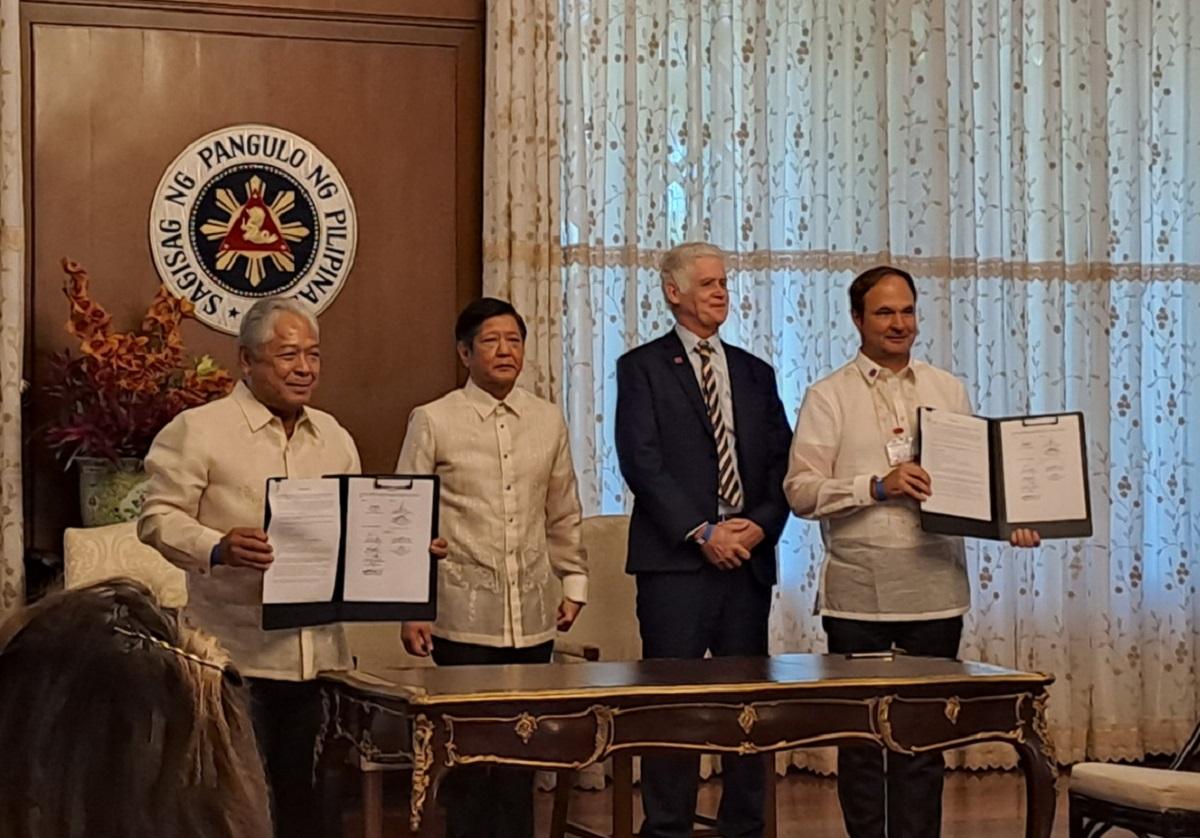Marcos: Railway projects to spur economic activities, promote environmental sustainability

President Ferdinand "Bongbong" Marcos Jr. on Thursday expressed confidence that his administration's railway projects would bring more economic activities and promote environmental sustainability.
Marcos said this during the ceremonial contract signing of the North-South Commuter Railway Project - South Commuter Contract Packages (CPS) S-02 and S-03B held at the President’s Hall, Malacañang Palace.
Marcos said the project aims for "speedier transactions, more quality time, and improved quality of life for all."
"Imagine the comfort and convenience of traveling via train from Clark International Airport to Calamba in just two hours. This is something that I still marvel at because in my lifetime, we have never seen that," Marcos said in his speech.
"The railway will also spur economic activities in the interconnected regions, and in all the areas in between. Moreover, it will promote environmental sustainability and public health," Marcos added.
Marcos expressed gratitude to the Asian Development Bank (ADB) and the Japan International Cooperation Agency (JICA) "for being the country’s active and consistent partners in infrastructure development for many, many, many years now."
"Your support has been instrumental in our efforts to provide safe, sustainable, and efficient public transportation for Filipino people," Marcos said.
Marcos said with the signing of the contract, the public will see the commencement of the third phase of the North-South Commuter Railway (NSCR) system—the South Commuter Section or the South Commuter Railway Project (SCRP).
"These Contract Packages constitute some 14-kilometer stretch of the SCRP, running through Metro Manila, both above and below its surface. Totaling 55.6 kilometers, the SCRP will connect Manila to Laguna, rounding out the southern leg of the NSCR system," Marcos said.
"In a larger context, this is also an extremely exciting prospect, because it means that all phases of the NSCR system are now officially in full swing," Marcos added.
The 163-kilometer NSCR Project is composed of a 40-kilometer line from Tutuban, Manila to Malolos, Bulacan, and its extensions: Malolos to Clark, Pampanga, and Manila to Calamba, Laguna.
The entire NSCR project is seen to further strengthen the Philippines’ economic recovery from the adverse impact of the COVID-19 pandemic as it is expected to create more than 35,500 jobs during construction and over 3,200 permanent jobs during operation. — RSJ, GMA Integrated News




